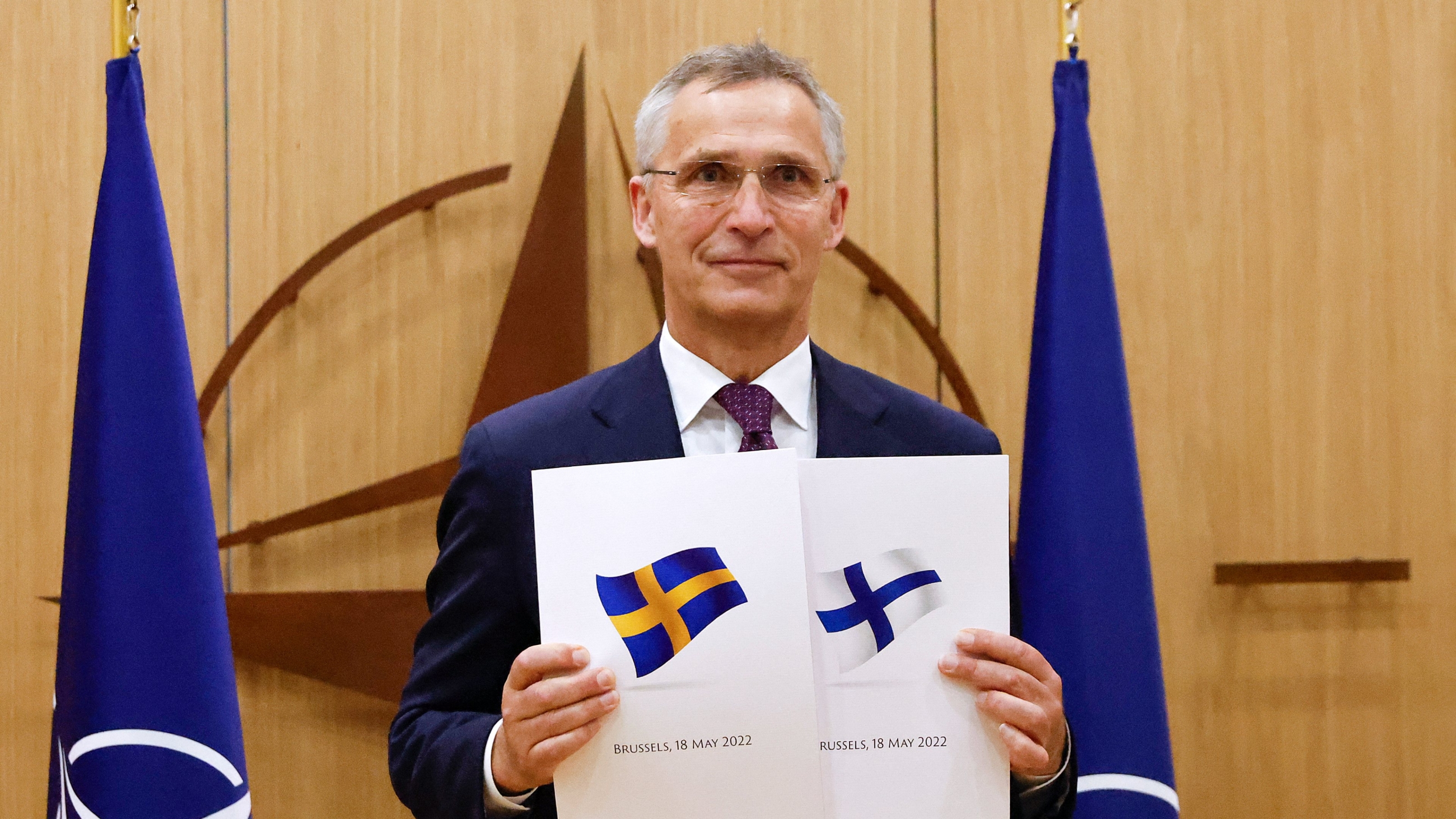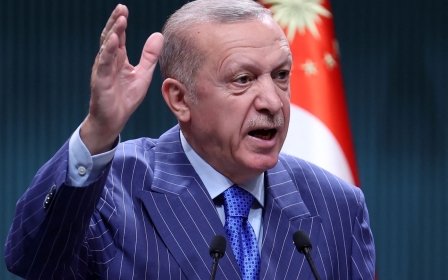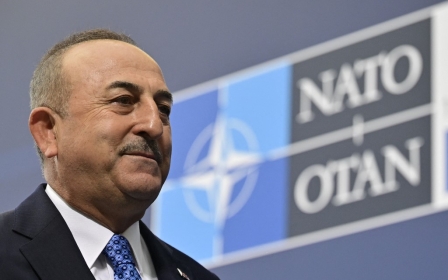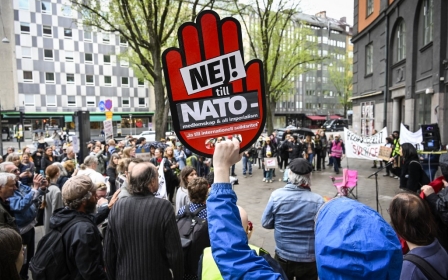Turkey blocks start of talks on Sweden and Finland's Nato bids

Turkey has blocked the start of Nato talks regarding Finland and Sweden's bids to join the alliance, two sources have told Middle East Eye.
At a Nato ambassadorial-level meeting on Wednesday in Brussels, Turkey voted against commencing the discussion, citing its objection to the bid. A source with knowledge of the matter said Turkey publicly made clear its opposition to Finland and Sweden’s accession to Nato and acted as it promised it would.
Turkey accuses both countries of adopting a lax attitude towards the Kurdistan Workers' Party (PKK), which has fought an armed struggle with the Turkish state since 1984, first for a Kurdish independent state and later for an autonomous region. Turkey, the US and EU all designate the PKK as a terrorist organisation, due to a history of deadly attacks on civilians.
Finland and Sweden formally applied to join the Nato alliance on Wednesday. All 30 Nato members need to approve their admission. Turkey's stance doesn't mean that Sweden and Finland's bids are dead, as a proposal to open negotiations could be raised at a later date.
Turkish demands
New MEE newsletter: Jerusalem Dispatch
Sign up to get the latest insights and analysis on Israel-Palestine, alongside Turkey Unpacked and other MEE newsletters
Turkish President Recep Tayyip Erdogan on Wednesday repeated his position that Ankara wouldn’t rubber stamp the Nordic states' accession to the alliance due to their policy towards the PKK, saying their admission depends on showing respect to Turkey’s security needs.
Turkish officials demand that Sweden and Finland extradite alleged PKK members to Turkey, stop PKK activities in their respective countries and end military export bans that were introduced in 2019 in response to Ankara's military operations in Syria.
Sweden and Finland have rejected Turkey's accusations, affirmed their recognition of the PKK as a terror group and vehemently denied providing it with any support.
Erdogan said that Nato countries, in the past, have not attempted to understand Turkey’s "war on terrorism", let alone help Ankara protect itself against attacks or aid Turkish authorities to secure their borders against foreign wars in the region.
"We haven’t forgotten the withdrawal of air defence systems from our borders as Daesh [Islamic State] was pushing towards our borders,” Erdogan said, referring to the US decision to withdraw Patriot missile defence from Turkey in 2015.
Erdogan said that countries like Sweden, France, Germany and the Netherlands were permitting PKK members to organise events in their countries. A giant PKK flag appeared at a Stockholm protest this week, angering Turkish officials.
"They still permit these terrorists to wave their flags in their streets," Erdogan added. "We cannot say yes to these countries' Nato bid."
Erdogan's director of communications, Fahrettin Altun, said in an op-ed that appeared on a Swedish daily news website that Turkey had seized Swedish anti-tank weapons during its crackdown on the PKK.
"Well-known PKK operators continued their recruitment, financing and propaganda efforts in Sweden," he wrote. "This raised serious questions among the Turkish people regarding the reliability of our nation's future Nato allies."
Altun said that given this history, it would be unacceptable for Turkey to see Sweden try to join Nato without revising its stance. "I would like to express very clearly that Sweden will not be able to join Nato unless and until Turkey's legitimate concerns are taken into account," he added.
Middle East Eye delivers independent and unrivalled coverage and analysis of the Middle East, North Africa and beyond. To learn more about republishing this content and the associated fees, please fill out this form. More about MEE can be found here.




